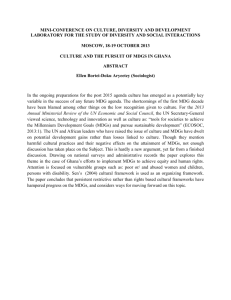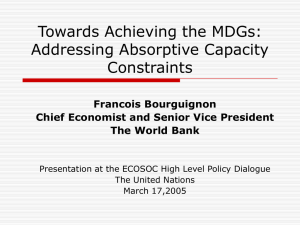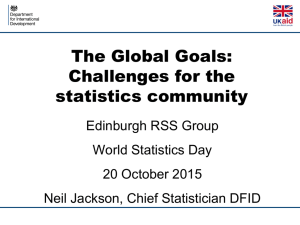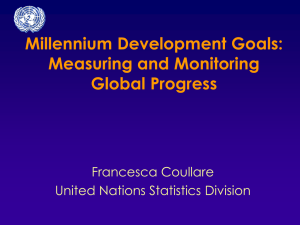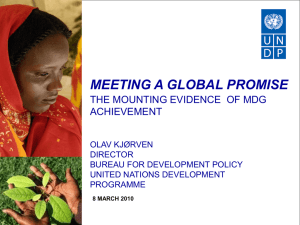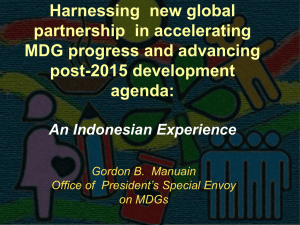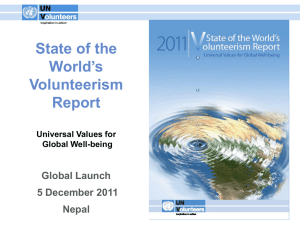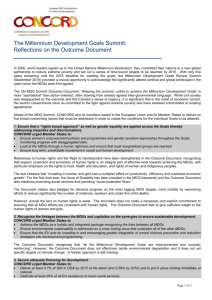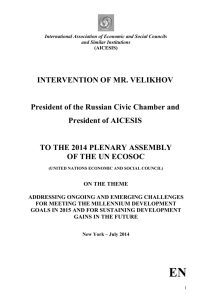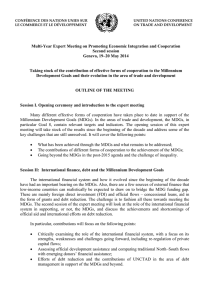Millennium Development Goals: Measuring and Monitoring Global
advertisement
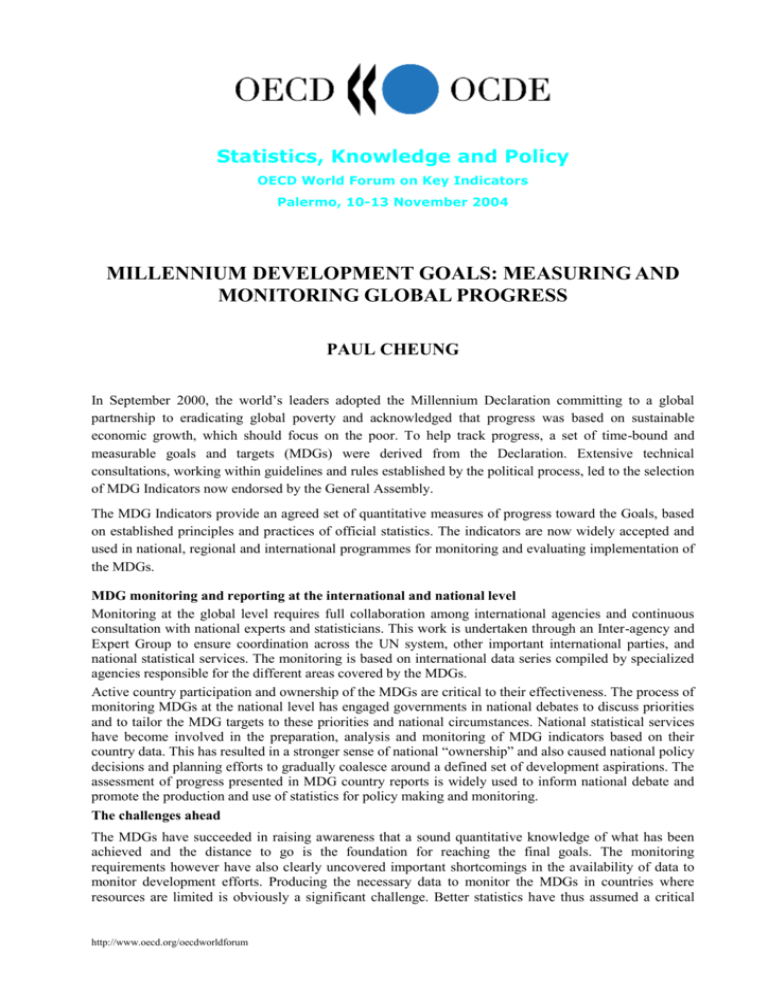
Statistics, Knowledge and Policy OECD World Forum on Key Indicators Palermo, 10-13 November 2004 MILLENNIUM DEVELOPMENT GOALS: MEASURING AND MONITORING GLOBAL PROGRESS PAUL CHEUNG In September 2000, the world’s leaders adopted the Millennium Declaration committing to a global partnership to eradicating global poverty and acknowledged that progress was based on sustainable economic growth, which should focus on the poor. To help track progress, a set of time-bound and measurable goals and targets (MDGs) were derived from the Declaration. Extensive technical consultations, working within guidelines and rules established by the political process, led to the selection of MDG Indicators now endorsed by the General Assembly. The MDG Indicators provide an agreed set of quantitative measures of progress toward the Goals, based on established principles and practices of official statistics. The indicators are now widely accepted and used in national, regional and international programmes for monitoring and evaluating implementation of the MDGs. MDG monitoring and reporting at the international and national level Monitoring at the global level requires full collaboration among international agencies and continuous consultation with national experts and statisticians. This work is undertaken through an Inter-agency and Expert Group to ensure coordination across the UN system, other important international parties, and national statistical services. The monitoring is based on international data series compiled by specialized agencies responsible for the different areas covered by the MDGs. Active country participation and ownership of the MDGs are critical to their effectiveness. The process of monitoring MDGs at the national level has engaged governments in national debates to discuss priorities and to tailor the MDG targets to these priorities and national circumstances. National statistical services have become involved in the preparation, analysis and monitoring of MDG indicators based on their country data. This has resulted in a stronger sense of national “ownership” and also caused national policy decisions and planning efforts to gradually coalesce around a defined set of development aspirations. The assessment of progress presented in MDG country reports is widely used to inform national debate and promote the production and use of statistics for policy making and monitoring. The challenges ahead The MDGs have succeeded in raising awareness that a sound quantitative knowledge of what has been achieved and the distance to go is the foundation for reaching the final goals. The monitoring requirements however have also clearly uncovered important shortcomings in the availability of data to monitor development efforts. Producing the necessary data to monitor the MDGs in countries where resources are limited is obviously a significant challenge. Better statistics have thus assumed a critical http://www.oecd.org/oecdworldforum role in the MDG agenda, with the international community recognizing that statistical development of national statistics needs to be part of any development strategy. Continuous efforts are needed by the international statistical community to overcome problems of comparability and provide an analysis of the aggregate figures that goes beyond the abstraction of averages and fairly represents the local situation. International statistical services have the responsibility of ensuring the credibility of the MDGs by providing every year a sound basis for assessing progress and for focusing the international debate and the development of strategies for the achievement of the goals. Page 2 of 2
